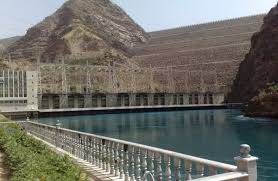The Asian Development Bank (ADB) has approved a $60 million loan to construct hydropower plants (HPPs) capable of adding 25 megawatts (MW) capacity, which will help the Government of Uzbekistan achieve its goal of diversifying the country’s energy mix through greater use of clean energy sources and lowering carbon emissions.
“ADB’s assistance to help build HPPs will boost Uzbekistan’s aim of securing a cleaner, more sustainable energy future,” said ADB Energy Specialist for Central and West Asia Mr. Seung Duck Kim. “The project’s integrated approach to high quality design, international practices on safeguards, and climate change resilience is a template for similar development of hydropower projects in Uzbekistan.”
Uzbekistan has abundant renewable energy resources, including hydropower. So far, only 1.9 gigawatts (GW) or 20% of the available hydropower potential has been exploited.
The project will construct hydropower plants with 25 MW of total capacity. This is composed of a 6 MW plant in Rabat, an 8 MW plant in Chappasuy, a 10 MW plant in Tamshusu, and three mini/micro-hydropower plants with a combined capacity of 1 MW. The mini/micro-HPPs will ensure the efficient use of water resources including from spillover water from dams or irrigation canals, and can be alternate sources of electricity in rural and remote villages. The project will also help the government to formulate a hydropower development masterplan, which will help identify potential private sector investment opportunities through public–private partnerships.
The Joint-Stock Company Uzbekhydroenergo, as the nodal agency to oversee the government’s $2.6 billion investment program to increase the country’s hydropower capacity by 1,600 MW by 2030, will be the project’s executing agency. ADB will also help improve Uzbekhydroenergo’s institutional capacity and corporate governance throughout the project.
The total cost of the project is $75.3 million and is expected to be completed by the end of 2023.












